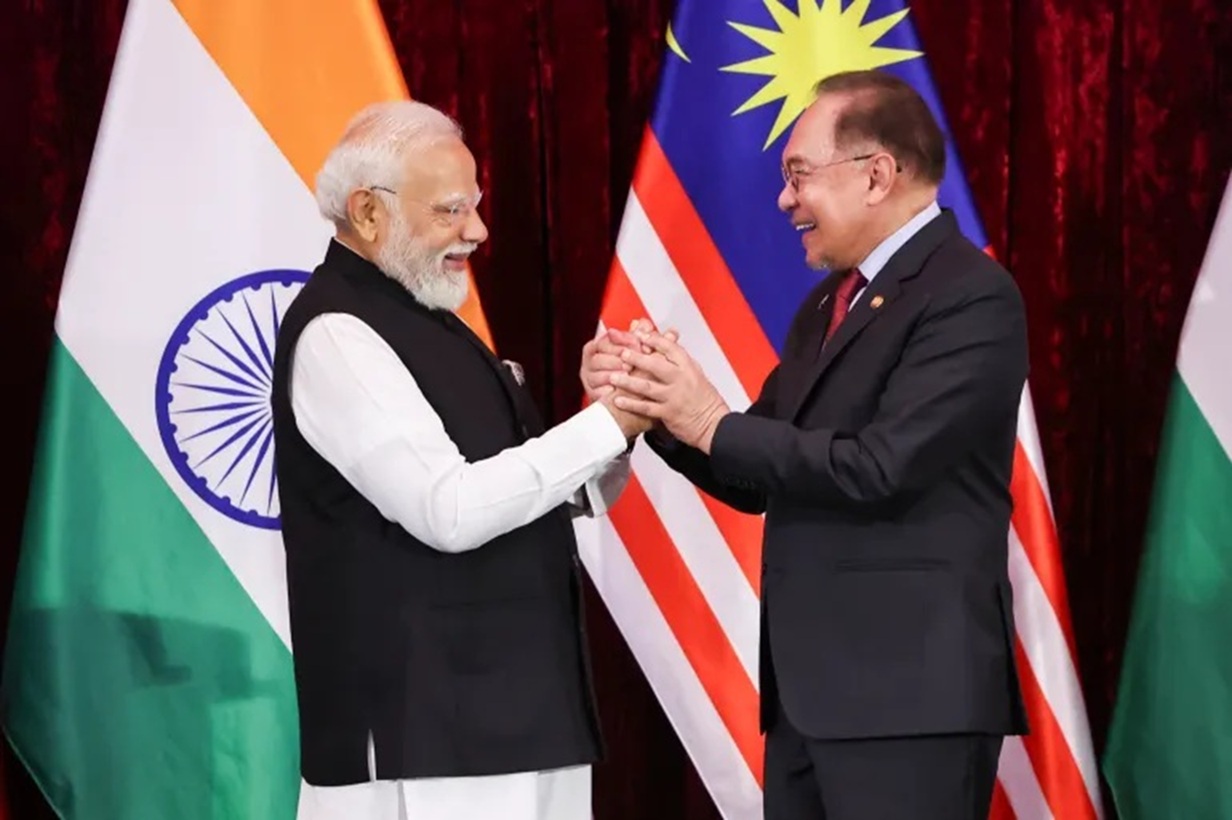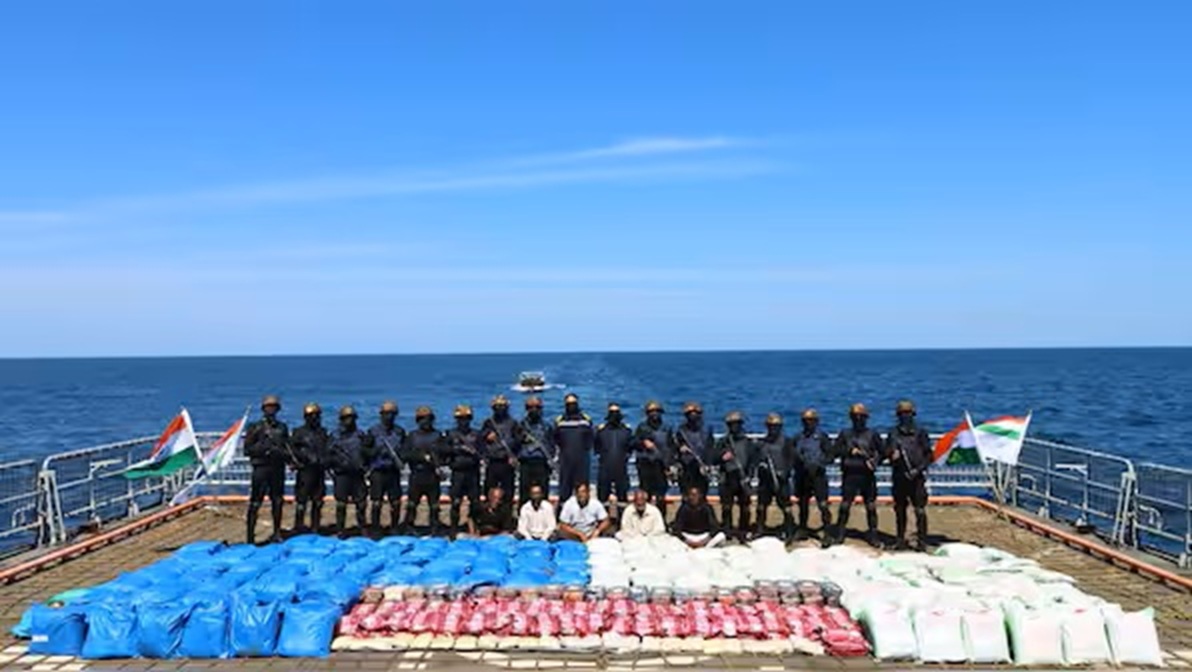Fifteen years ago, the Arab Spring spread across almost four Continents of the globe. Contemporary after fifteen years of the Arab Spring, youth-led mobilisations and protests once again grip the world politics, particularly the global south region. The violent movements prominently considered as Gen-Z (broadly those born from the late 1990s through the 2010s) revolution emerged as a significant political and social force of change. They are demonstrating a distinctive capacity to transcend geographical and cultural boundaries through digital connectivity with the power combination of social media, functioning as both a catalyst for mobilisation and a medium for reconfiguring the governance structure. The Gen-Zs are displaying their resentment at public spaces (like streets, roads, public buildings, etc.) to articulate shared grievances and aspirations. A notable feature of this phenomenon is the creative appropriation of popular cultural symbols, including Japanese comics (manga and anime), which serve not only as aesthetic markers but also as unifying emblems of resistance and identity formation. This interweaving of digital activism, cultural symbolism, and collective street politics underscores the hybrid and globalised character of Gen-Z’s political agency, marking the prescription for government’s greater accountability for people’s welfare.
Gen-Z’s Rise and Transnational Mobilisation through Social Media
Social media has functioned as a crucial platform through which young people articulate both aspirations and grievances, enabling rapid diffusion of narratives and strategies across borders. Gen-Z are digital natives; they have grown up with the internet, smartphones, and social media platforms as part of daily life, unlike the previous generations. This has made them exceptionally skilled at using these tools to connect, communicate, and mobilise quickly across borders. Social media provides Gen-Z with a space to express themselves, showcase creativity, and build communities around shared interests and values. Platforms like Instagram, TikTok, X (formerly Twitter), and YouTube not only shape their cultural consumption but also allow them to influence trends and narratives on a global scale. Gen-Z uses social media not just for entertainment, but also for activism and raising awareness. They often leverage hashtags, viral campaigns, and online petitions to highlight issues such as climate change, gender equality, racial justice, and economic inequality. The Gen-Z revolution is setting forth a demand for greater government accountability and the pursuit of good governance. Through social media platforms, young people are amplifying their voices, mobilising across borders, and drawing attention to systemic inequalities and governance failures. These movements illustrate how a digitally connected generation is redefining civic engagement and holding governments accountable to higher standards of transparency and responsiveness. Gen-Z’s activism tends to be decentralised and network-based. Social media enables “horizontal mobilisation, where individuals coordinate across regions without relying on a central leader. This makes their movements harder to suppress and more adaptive, channelised youth activism by acting as a central force that enables leaderless mobilisation. It provides young people with the convenience of setting collective agendas and coordinating movements without traditional hierarchical leadership structures. Gen-Z, in particular, is harnessing the power of social media as a transformative medium for driving social and political change in the global South countries.
The Gen-Z Wave: From Local Protest to Global Impacts
Almost all major regions of the global south, such as South America, Africa, South East Asia, South and West Asia, are under the grip of Gen-Z protests, political mobilisation and street violence and clashes. The young generation of these regions is facing major grievances such as corruption, failed public welfare, imposing digital ban and most importantly, facing governance challenges in the day-to-day livelihood. Following the South Asian countries such as Pakistan, Sri Lanka, Bangladesh and Nepal, protests are led by tech-savvy, faced violent Gen-Z revolt against the mismanagement of resources, corruption and challenges related to governance deficit in these countries. Likewise, in the Southeast Asian region, Indonesia and neighbouring Timor-Leste have faced a similar kind of Gen-Z protests in favour of a pro-West balance of power in the region. In Indonesia, according to the United Nations Office on Drugs and Crime reports that corruption slows economic growth and increases inequality has been a major obstacle to the country’s development. Similarly, the Philippines, capital Manila, also faced the violent protest where police arrested more than 200 masked protesters, pitching the fertile ground of ‘Asian Spring’ for democracy and good governance. The other part of the global south, such as Africa, Latin America and the Middle East, is also facing a similar kind of protests. For example, Madagascar and Morocco, and Peru have witnessed the turbulence that may be termed as “Gen-Z revolutions.” The revolution is also occurring in other parts of Global South countries, where young people have articulated similar forms of resentment and discontent toward their respective political regimes. These movements, while contextually distinct, reveal converging patterns of generational frustration with governance deficits, economic precocity, and democratic backsliding, thereby situating Gen-Z at the forefront of contemporary political contestation. Recently, thousands of protesters, predominantly Gen-Z, occupied the streets against long-standing water and power cuts in cities across Madagascar. They chanted the slogan “We want to live, not survive”. The United Nations report has stated that at least 22 people have been killed and 100 others injured. However, Madagascar’s foreign ministry has rejected the UN’s figures, alleging the data is “based on rumours or misinformation”. In Morocco, hundreds of young protesters have taken to the streets, which have been described as some of the country’s largest anti-government demonstrations in years, seeking better government services as well as an end to corruption. The immediate core criticism by Younger protesters against the government is that giving utmost priority to stadium construction for the 2030 FIFA World Cup, as it overlooks pressing public health and education crises. While professing its “love for the homeland” in Kenya, youth-led demonstrations earlier in 2025 challenged government fiscal policies and tax increases, characterised by decentralised organisation and a strong reliance on online platforms. In Indonesia, gig economy workers mobilised in late August to oppose proposed reductions in welfare benefits under President Prabowo Subianto. Public discontent was further exacerbated when legislators were granted housing allowances amounting to ten times the minimum wage, against a backdrop of increasing concern regarding the consolidation of power among military and economic elites. The hashtag trend, such as Gen-Z 212 demonstrations in Morocco, also expanded to at least eleven cities, including Casablanca, Rabat, Marrakesh, and Agadir, highlighting the capacity of digital connectivity to transform localised discontent into nationwide mobilisation. People have inadequate access Youth unemployment rate in Morocco is reaching around 35% and 19% among graduate youth. Similar trends have been followed by Gen-Z in Serbia, Togo, Georgia, and East Timor hassled the law and order due to violent protests for months. The causes are also the same in these countries: corruption, mismanagement of economic affairs, digital disruption and governance deficit. Currently, Georgia European country, also faced strong protests by Gen-Zs against the strategic alignment with Russia. Therefore, these protests are starting from local efforts, but ending with violent outcomes and regime change tends especially in small countries, making global impacts in geopolitics and regional security dynamics of the global south countries.
Governance Deficit and Lack of Political Accountability in Global South Countries
The emerging transnational mobilisations led by Generation Z demonstrate deep interconnections across Global South countries. While grievances over social inequality, global governance deficit and limited opportunities are not necessarily sudden catalysts, they constitute enduring structural drivers of discontent. Recent developments in Madagascar and Morocco, following earlier youth-led protests in Kenya, Bangladesh, Nepal, Indonesia, the Philippines and Peru, indicate the governance deficit and people’s dissatisfaction, both horizontal and vertical, toward the governing authorities. A governance deficit refers to the gap between the normative ideals of good governance, such as accountability, transparency, participation, and effective delivery and the actual functioning of institutions, where policies exist but are poorly implemented, leading to inefficiency, corruption, and loss of public trust. There is a huge gap between the ideal standards of governance (what should be delivered) and the actual performance of governing institutions (what is delivered in reality) in the Global South, which have failed to meet the expectations of the young generation of these countries. Simultaneously, Gen-Z is coming of age in a world shaped by rapid digital connectivity, global crises (economic, environmental, political), and evident failures or delays in governance. These conditions have created fertile ground for new forms of political expression, social activism, and demands for reform. The “Gen-Z revolution” can be understood as the constellation of these movements and attitudes, both symbolic and substantive, that contest governance deficits in multiple spheres: local, national, and global. The concept of ‘welfarism’ is almost lost in Global South countries. The public funding has been disappearing, which has a direct impact on the health system, education, and legitimisation of democratic states and governance challenges. Consequently, Gen-Z are the prime victim of this defective system or policy approach. The health and education system in most of these Global South countries performs poorly, and a large section of these countries is deteriorating. Therefore, the lack of greater political accountability by governments, administrative misconduct, corruption, poor public policies, and not delivering the election promises, increased the mistrust among Gen-Z, especially since COVID-19, shaped the social, economic and political fragile environment for Gen-Z revolution in the global south countries.
Shaping the Future Power Structure in Global South Countries
The digitally connected generation of Gen-Z is challenging the traditional global power structure, especially in the global south countries, where the gap between political promises and delivering real political accountability is increasing day by day. Gen-Z wants to change the traditional power structure towards greater political accountability, which ensures transparency, responsibility and responsiveness. The recent mobilisation of Gen-Z is are quest for generational change, especially in global south countries that are facing serious governance deficits, corruption in bureaucracy, lack of strong institutionalisation and strategic autonomy in internal and external affairs. It is still a challenge that Gen-Z is really prepared for new governance, making challenges after the violent protests and regime change in their respective countries or complex the further geopolitics of the global south countries or likewise the Arab spring, Gen-Z movement will also lead to the future power vacuum for new military dictators or authoritarian regimes. Though the waves of Gen-Z movement are purely different from the Arab Spring, as it is for the cause of welfarism and determining the greater political accountability for real change in democratic governments in the global south countries.
Title Image Courtesy: Bloomberg
Disclaimer: The views and opinions expressed by the author do not necessarily reflect the views of the Government of India and the Defence Research and Studies







